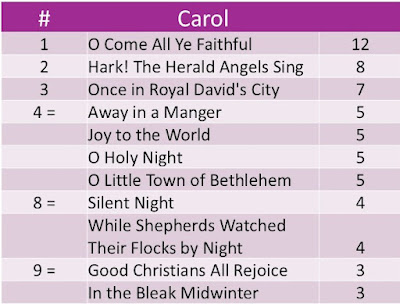I bought Orbital by Samantha Harvey in Wolverhampton on our wedding anniversary back in September. It was marked as being on the Booker long list when I bought it. Shortly after I started reading it, it won!
I was attracted to the book by the premise - a team of astronauts completing a 24 hour cycle on board, orbiting the planet 16 times during that period. It felt like sciencey fiction rather than science-fiction, and it was intriguing.
It has the added bonus of being a short book, but that didn't make it a fast or easy read. There is a deliberateness to the prose - I get the sense this is one of those books where the author lingered over every sentence and rewrote every paragraph. It certainly feels over-written. I've seen it described as 'would have been better as a poem' and there is a descriptive poetic quality to the language.
However, there are benefits in the way the prose mirrors the exacting over-engineered nature of the space station. Firstly, it slowed me down as a reader, forcing me into ponderous progress not unlike the astronauts struggling to keep artificial time in a scenario where time is essentially meaningless - it will be sunset or sunrise soon, they will see both in the next hour or so and then again in the hour after that.
The second unexpected benefit is a sense of cool detachment. The astronauts are both inhabitants of Earth and not, so their perspective is suddenly wider in its compass, seeing the planet as a whole.
However, this slowed down detachment gets tedious very quickly. To add to the dreamlike narrative, there is no direct speech. Conversations are reported on the same way as characters internal thoughts, the same way as flashbacks to Earth, the same way as the characters past experiences. The sentences are full of descriptors. Consider this passage and you will see what I mean:
"Blue becomes mauve becomes indigo becomes black, and night-time downs southern Africa in one. Gone is the paint-splattered, ink-leached, crumpled-satin, crumbled-pastel-overflowing-fruit-bowl continent of chaotic perfection, the continent of salt pans and red sedimented floodplain and the nerve networks of splaying rivers and mountains that bubble up from the plains green and velvety like mould growth. Gone is a continent and here another sheer widow's veil of star-struck night." (p.91)
Exhausting, isn't it.
Back when I was in school we had an English lesson discussing the difference between metaphors and similes. I count six (maybe seven) metaphors and one simile in that short section. And that's not even a complete paragraph.
It's lovely, beautiful, evocative language that effectively replicates the grandeur of seeing a continent slip below your window as you sail past in low earth orbit. But, my goodness, it's draining to read.
And the spaceship makes a complete orbit of the Earth every 90 minutes. Each chapter of the book is an orbit. There are regular updates of which parts of the planet the space station is travelling over. I like geography but even I grew tired of reading lists of countries, continents and seas.
Amid all the metaphors there are the stories of the individuals in the team of astronauts. Two main stories dominate the book - one personal, the death of a parent; the other a personal connection to a disastrous typhoon that the astronauts observe building up into a colossal fury unleashed on part of the world that isn't built to withstand typhoons.
As they go about their various jobs and tasks, ranging from examining the effects of life in space on mice through to taking their own blood samples to examine the effects of space on them, we learn about each character's drive to get into space. We discover their inspiration, their similar personalities that carried them through astronaut and cosmonaut programmes. They have wildly different origin stories but their common humanity shines through.
The base shared humanness of the crew is the central underlying theme of the book - that actually we are all astronauts, travelling through the hostile barrenness of space on an amazing spaceship that happens to be a planet called Earth. The theme that we should be taking better care of this precious home of ours permeates the book, with a hard contrast to the cold vast emptiness of space. (I did smile at the description of the Voyager probes "wimbling into wayless dark".)
There is an urgency to that message that contrasts cleverly with the pace of the story. The detached astronauts orbiting overhead can see that we are one world, that frontiers are stupid, useless, arbitrary things that can't be seen from space. But can those of us locked to land see it too? And see it in time to avert disaster? That's the question that Orbital is really asking.

















































